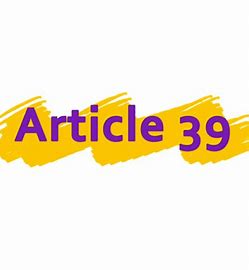 ARTICLE 39 and the Howard League for Penal Reform have welcomed the introduction of new secondary legislation which ends the curtailment of critical legal protections to people in prison in England, including children, which were imposed early on in the pandemic.
ARTICLE 39 and the Howard League for Penal Reform have welcomed the introduction of new secondary legislation which ends the curtailment of critical legal protections to people in prison in England, including children, which were imposed early on in the pandemic.
Legislation rushed through the UK Parliament in May and June 2020 permitted the removal of basic rights to visits, education and physical education, and purported to allow children to be locked in their cells for long periods. Throughout the pandemic, children in young offender institutions and secure training centres have suffered hugely impoverished regimes.
In May 2020, the Howard League published a briefing outlining the dire conditions experienced by children in prison during Covid. The prisons inspectorate also reported in May 2020 on the impact of the pandemic across the children’s estate and subsequently found that children in Rainsbrook and Oakhill secure training centres and a number of young offender institutions were kept in their cells for up to 23 hours a day during the pandemic, tantamount to solitary confinement.
The new legislation means that the legal basis for many of these restrictions will end on 24 March 2022 for children in young offender institutions. It appears that the expiry of restrictions in secure training centres will go ahead as planned on 25 March 2022.
The two charities wrote to Dominic Raab in September 2021, calling for children’s entitlements to education and family visits to be reinstated, warning that children in prison had suffered greatly during the pandemic.
Upon learning that the government intended to have a three-month gap between reinstating legal protections for children in secure training centres and then for those in young offender institutions, Article 39 and the Howard League wrote again to the government in October expressing their opposition and alarm. They called on ministers to provide evidence for this differential treatment and to publish their children’s rights and equality impact assessments, as required by law.
The statutory instrument, laid before Parliament on the first working day of the year, finally sees the end of almost two years of legislation which authorised unprecedented restrictions on children’s rights in prison in modern times.
Carolyne Willow, Article 39’s Director, said: “While the rest of the country responded to the first lockdown in 2020 by holding our children close and trying to make life as normal as possible for them, here we had central government rushing through secondary legislation to reduce children’s entitlements to education, time with their family and physical education. Council-run secure children’s homes were able to stay focused on children’s needs and welfare. It’s a disgrace that these legal changes were pressed through without any consultation or parliamentary debate and there’s no doubt they effectively gave the green light to widespread solitary confinement in child prisons.”
Laura Janes, Legal Director at The Howard League for Penal Reform, said: “For almost two years, the children the Howard League works with in prisons and STCs have been deprived of so much more than their liberty. While innovative solutions were found in the community even during the most severe stages of the pandemic to keep children learning, education for children in prison has been either non-existent or patchy. Many children have had no family visits and have spent many hours alone doing nothing when they should be learning and developing positive lives for themselves. The end of this era should be widely publicised to ensure transparency and accountability.”
The charities will continue monitoring Covid-19 secondary legislation, and stand ready to challenge any future attempts to weaken children’s rights in custody.
* Read the Howard League for Penal Reform’s briefing, Children in prison during the Covid-19 pandemic here.
* Source: Article 39